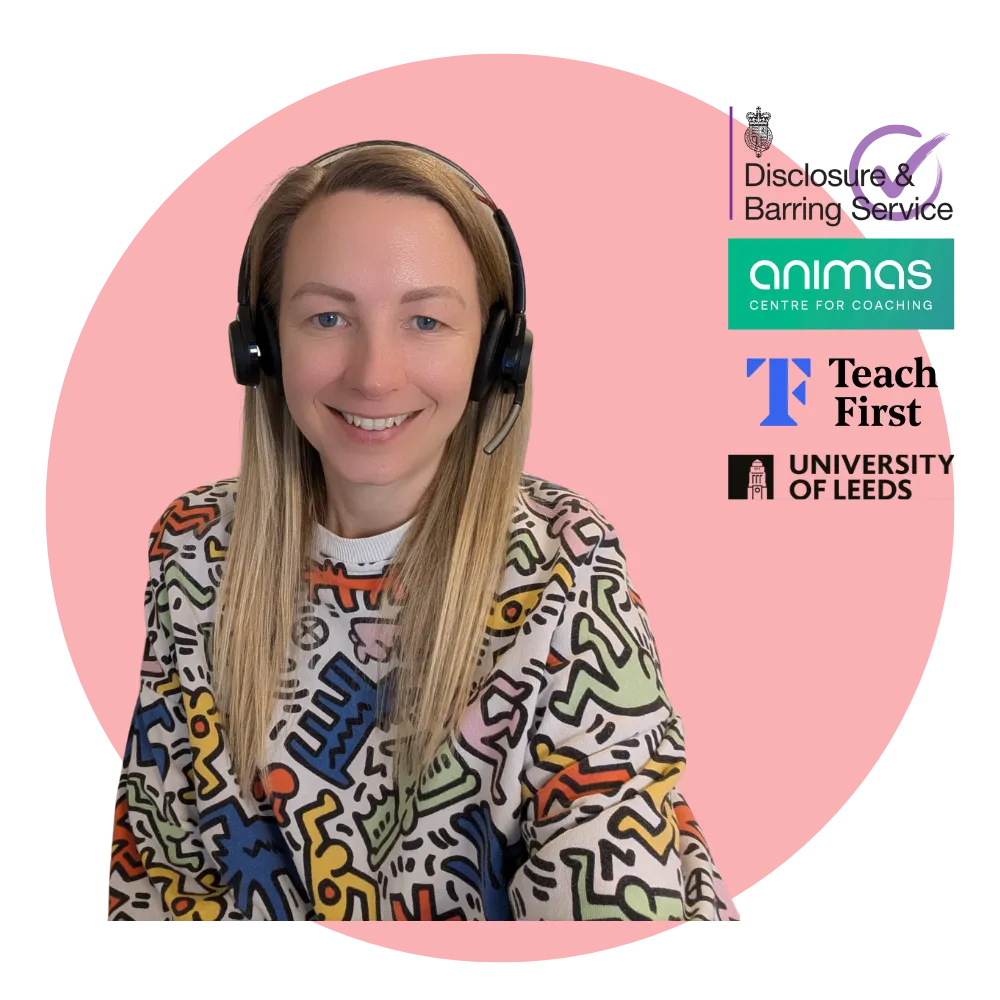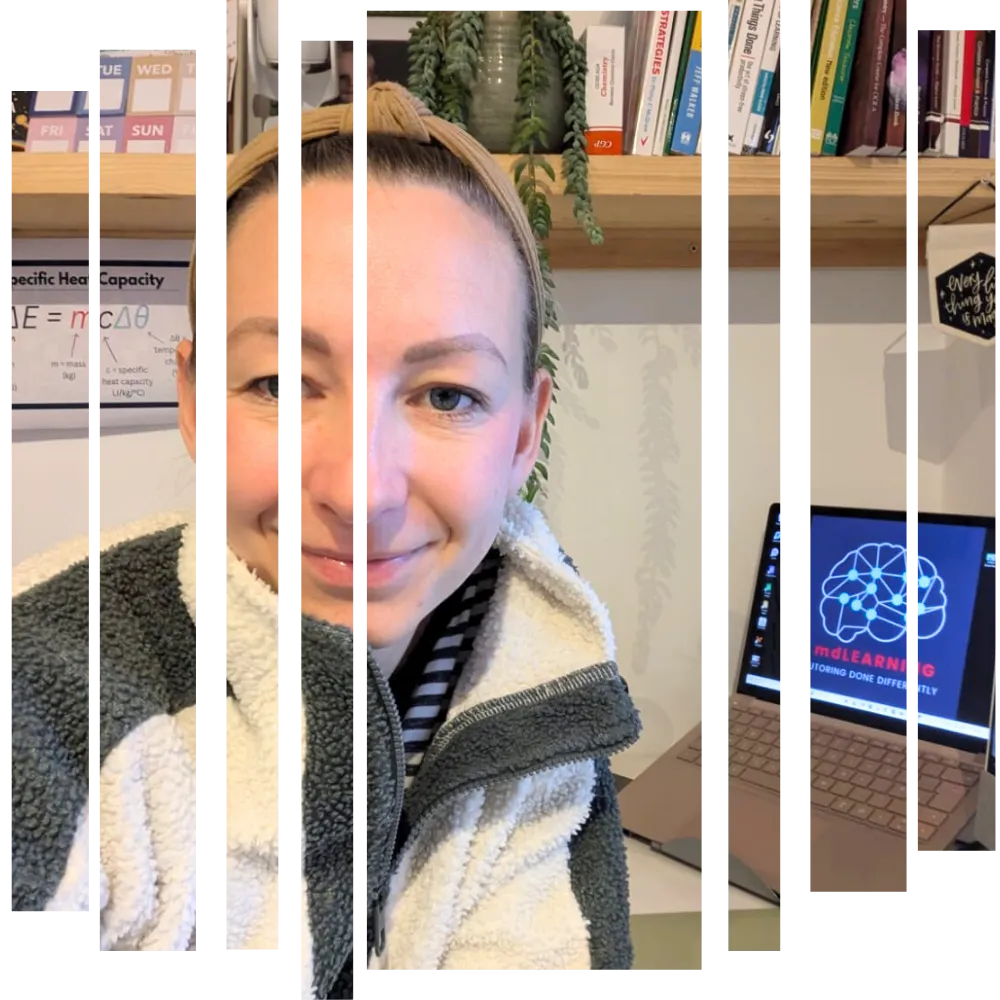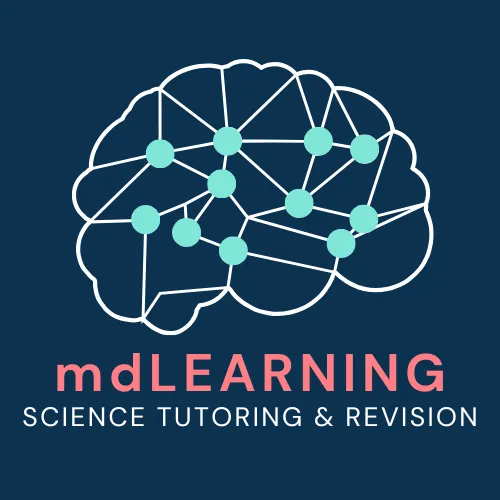A.C.E. Revision Framework
The Smarter Way to Prepare for GCSE Science



Active Learning First
Cover What Counts
Exam Mastery
Why I Created the A.C.E. Revision Framework
Many students spend hours revising for their GCSE Science exams, yet they struggle to turn that time into real results. They re-read notes, watch videos, and flick through past papers—but when it comes to the actual exam, they find it difficult to apply their knowledge under pressure.
I’ve worked with countless students who needed a smarter, more structured approach to revision—one that ensures every minute of study counts. That’s why I developed the A.C.E. Revision Framework: a three-pillar system designed to help students revise more effectively, stay engaged in their learning, and master exam techniques for higher grades.

GCSE Science tuition and revision experts
Our A.C.E. Revision Framework - The perfect revision for GCSE Science success
Each of these three pillars is essential for exam success . Whether you're starting your revision or refining your final exam techniques, the A.C.E. framework ensures you focus on what matters most, making your study time more effective.

Active Learning First
Active Learning First
Use active recall techniques like blurting, self-quizzing, and teaching others.
Apply spaced practice & interleaving to reinforce long-term memory
Engage with interactive learning tools like flashcards, small group discussions, and structured revision sessions
📌 Why 'ACTIVE LEARNING FIRST' matters
Passive revision (just reading or highlighting) is one of the biggest mistakes students make. Active learning helps you engage with the material, making it stick for longer.
💡 Why It Works
Active learning involves engaging directly with the material through activities like discussion, practice, and teaching others, leading to better understanding and retention. Just as cooking a recipe enhances memory of it, actively working with study material solidifies knowledge more effectively than passive reading.
💡 What the Science Says
A meta-analysis of 225 studies found that active learning reduces failure rates and improves exam performance in STEM subjects
A Harvard study demonstrated that students in active learning environments learn more than they perceive, outperforming peers in traditional lectures
Implementing active learning strategies can significantly increase student achievement, indicating the effectiveness of this teaching method
💡 Learn more
For a deeper dive into active learning techniques and their benefits, read our blog post:
How Active Learning Boosts Exam Success.
By prioritising active learning, you engage more deeply with the material, leading to improved understanding and academic performance.

Cover What Counts
Cover What Counts
Use diagnostic quizzes, past papers, and checklists to pinpoint strengths and weaknesses
Create a personalised study plan that prioritises weak areas over what you already understand
Track progress with a revision log to stay on top of what still needs work.
📌 Why 'COVER WHAT COUNTS' matters
Many students waste valuable revision time by covering everything, instead of focusing on what they actually need to improve. Without assessing what you already know, you risk spending too much time on familiar topics and not enough on weaker areas.
Strategic revision ensures time and effort are spent where they will have the biggest impact, leading to better retention and exam success.
💡 Why It Works
Covering everything isn’t effective—targeted revision is. When you focus on what you don’t know rather than what you already understand, your study time is more productive.
Using past papers and diagnostic tools highlights knowledge gaps, allowing you to prioritise high-impact topics
Tracking progress helps you see improvement and adjust your study plan as needed
Revising efficiently reduces stress and ensures you walk into exams prepared
Just as an athlete wouldn’t train all muscles equally but focus on weaker areas, students should do the same with their revision.
💡 What the Science Says
A critical review of research on student self-assessment found that self-assessment practices empower students to guide their own learning and internalize criteria for success, leading to improved performance
A study on study habits and performance highlighted that effective study strategies, including self-assessment and targeted revision, are associated with better exam performance.
Research on self-assessment's impact indicates that self-assessment not only makes learning more goal-oriented and effective but also equips students with skills for self-regulated learning
💡 Learn more
For a deeper dive into effective study planning and how to focus on what matters most, read our blog post:
➡ How to Focus Your Revision on What Really Matters

Exam Mastery
Exam Mastery
Understand command words and how to structure answers to meet examiner expectations
Practice timed past papers to simulate real exam conditions
Use Walking Talking Mocks (WTM) to get expert guidance on structuring answers for maximum marks
📌 Why 'EXAM MASTERY' matters
Many students know the content but struggle to turn that knowledge into marks. Exams are not just about what you know—they are about how well you apply that knowledge under timed conditions.
Students often lose marks because they:
Don’t understand exactly what the question is asking
Struggle to organise their answers clearly
Run out of time before completing the exam
By mastering exam technique, students maximise their marks and perform more confidently under pressure.
💡 Why It Works
Exams test more than knowledge—they test strategy. Knowing the material is only half the battle. The difference between a Grade 5 and a Grade 8 can come down to answer structure, timing, and knowing what examiners are looking for.
Understanding command words (e.g., "describe," "explain," "evaluate") ensures students answer the question properly
Practising under timed conditions helps students manage time effectively and avoid leaving questions unfinished.
Exam walkthroughs (like Walking Talking Mocks) teach students how to structure answers for maximum marks.
Just like an athlete wouldn’t train for a marathon without practising race conditions, students shouldn’t go into exams without simulating real exam conditions.
💡 What the Science Says
Understanding Command Words: Recognising and accurately responding to command words is crucial for effective answers. AQA provides a comprehensive list tailored for science exams.
Practicing Under Exam Conditions: Engaging in timed practice sessions can significantly improve exam performance. Research indicates that such practices enhance time management and reduce anxiety. For instance, a study on the impact of realistic practice exams found that they are highly effective learning tools, leading to significant improvements in student performance.
Exam Technique Training: Explicit instruction on exam strategies, including interpreting command words and structuring responses, leads to improved student outcomes. For example, action research on a Year 11 exam technique intervention demonstrated that targeted strategies helped improve pupils' exam performance in science subjects.
💡 Learn more
For an in-depth exploration of exam technique strategies, read our blog post:
➡ How to Improve Your Exam Technique & Maximise Marks
Focusing on Exam Mastery empowers students to apply their knowledge effectively, ensuring they secure every possible mark in the exam.
GCSE Science tuition and revision experts
Our A.C.E. Revision Framework - The perfect guided revision course for your GCSE Science success
Each of these three pillars is essential for exam success . Whether you're starting your revision or refining your final exam techniques, the A.C.E. framework ensures you focus on what matters most, making your study time more effective.

Active Learning First
Use active recall techniques like blurting, self-quizzing, and teaching others.
Apply spaced practice & interleaving to reinforce long-term memory
Engage with interactive learning tools like flashcards, small group discussions, and structured revision sessions
📌 Why 'ACTIVE LEARNING FIRST' matters
Passive revision (just reading or highlighting) is one of the biggest mistakes students make. Active learning helps you engage with the material, making it stick for longer.
💡 Why It Works
Active learning involves engaging directly with the material through activities like discussion, practice, and teaching others, leading to better understanding and retention. Just as cooking a recipe enhances memory of it, actively working with study material solidifies knowledge more effectively than passive reading.
💡 What the Science Says
A meta-analysis of 225 studies found that active learning reduces failure rates and improves exam performance in STEM subjects
A Harvard study demonstrated that students in active learning environments learn more than they perceive, outperforming peers in traditional lectures
Implementing active learning strategies can significantly increase student achievement, indicating the effectiveness of this teaching method
💡 Learn more
For a deeper dive into active learning techniques and their benefits, read our blog post:
How Active Learning Boosts Exam Success.
By prioritising active learning, you engage more deeply with the material, leading to improved understanding and academic performance.

Cover What Counts
Use diagnostic quizzes, past papers, and checklists to pinpoint strengths and weaknesses
Create a personalised study plan that prioritises weak areas over what you already understand
Track progress with a revision log to stay on top of what still needs work.
📌 Why 'COVER WHAT COUNTS' matters
Many students waste valuable revision time by covering everything, instead of focusing on what they actually need to improve. Without assessing what you already know, you risk spending too much time on familiar topics and not enough on weaker areas.
Strategic revision ensures time and effort are spent where they will have the biggest impact, leading to better retention and exam success.
💡 Why It Works
Covering everything isn’t effective—targeted revision is. When you focus on what you don’t know rather than what you already understand, your study time is more productive.
Using past papers and diagnostic tools highlights knowledge gaps, allowing you to prioritise high-impact topics
Tracking progress helps you see improvement and adjust your study plan as needed
Revising efficiently reduces stress and ensures you walk into exams prepared
Just as an athlete wouldn’t train all muscles equally but focus on weaker areas, students should do the same with their revision.
💡 What the Science Says
A critical review of research on student self-assessment found that self-assessment practices empower students to guide their own learning and internalize criteria for success, leading to improved performance
A study on study habits and performance highlighted that effective study strategies, including self-assessment and targeted revision, are associated with better exam performance.
Research on self-assessment's impact indicates that self-assessment not only makes learning more goal-oriented and effective but also equips students with skills for self-regulated learning
💡 Learn more
For a deeper dive into effective study planning and how to focus on what matters most, read our blog post:
➡ How to Focus Your Revision on What Really Matters

Exam Mastery
Understand command words and how to structure answers to meet examiner expectations
Practice timed past papers to simulate real exam conditions
Use Walking Talking Mocks (WTM) to get expert guidance on structuring answers for maximum marks
📌 Why 'EXAM MASTERY' matters
Many students know the content but struggle to turn that knowledge into marks. Exams are not just about what you know—they are about how well you apply that knowledge under timed conditions.
Students often lose marks because they:
Don’t understand exactly what the question is asking
Struggle to organise their answers clearly
Run out of time before completing the exam
By mastering exam technique, students maximise their marks and perform more confidently under pressure.
💡 Why It Works
Exams test more than knowledge—they test strategy. Knowing the material is only half the battle. The difference between a Grade 5 and a Grade 8 can come down to answer structure, timing, and knowing what examiners are looking for.
Understanding command words (e.g., "describe," "explain," "evaluate") ensures students answer the question properly
Practising under timed conditions helps students manage time effectively and avoid leaving questions unfinished.
Exam walkthroughs (like Walking Talking Mocks) teach students how to structure answers for maximum marks.
Just like an athlete wouldn’t train for a marathon without practising race conditions, students shouldn’t go into exams without simulating real exam conditions.
💡 What the Science Says
Understanding Command Words: Recognising and accurately responding to command words is crucial for effective answers. AQA provides a comprehensive list tailored for science exams.
Practicing Under Exam Conditions: Engaging in timed practice sessions can significantly improve exam performance. Research indicates that such practices enhance time management and reduce anxiety. For instance, a study on the impact of realistic practice exams found that they are highly effective learning tools, leading to significant improvements in student performance.
Exam Technique Training: Explicit instruction on exam strategies, including interpreting command words and structuring responses, leads to improved student outcomes. For example, action research on a Year 11 exam technique intervention demonstrated that targeted strategies helped improve pupils' exam performance in science subjects.
💡 Learn more
For an in-depth exploration of exam technique strategies, read our blog post:
➡ How to Improve Your Exam Technique & Maximise Marks
Focusing on Exam Mastery empowers students to apply their knowledge effectively, ensuring they secure every possible mark in the exam.
GCSE Science tuition and revision experts
Ready to Revise Smarter with A.C.E.?
The A.C.E. framework is your guide to effective GCSE Science revision—but you don’t have to do it alone! Work with me to apply A.C.E. in a structured, supported way through tutoring and exam guidance.
Choose the best option for you:
121
Tutoring
Small Group Tutoring
Walking Talking Mock
1:1 Tutoring – Personalised A.C.E. Support
Work with me one-on-one to create an active learning plan, focus on your weakest areas, and master exam technique with expert guidance.
Tailored lessons that follow the A.C.E. framework
Bespoke revision plans based on your needs
Flexible scheduling for maximum support
Helix Small Group Tutoring – A.C.E. in Action
Join a structured small group programme designed around A.C.E., where you’ll get live teaching, active learning activities, and targeted revision plans.
Interactive, engaging sessions to help you stay on track
Active learning techniques built into every lesson
Exam-focused revision to improve understanding and recall
Walking Talking Mocks – Master Exam Technique
My Walking Talking Mock courses take you step-by-step through past papers, so you know how to tackle every question.
Walkthroughs of past GCSE Science papers
Expert breakdown of what examiners are looking for
Tips & strategies to maximise marks in exams
Not Sure Which Option is Right for You?
Let’s chat! Book a free consultation to discuss what would work best for your revision needs.
GCSE Science tuition and revision experts
Ready to Revise Smarter with A.C.E.?
The A.C.E. framework is your guide to effective GCSE Science revision—but you don’t have to do it alone! Work with me to apply A.C.E. in a structured, supported way through tutoring and exam guidance.
Choose the best option for you:
121
Tutoring
1:1 Tutoring – Personalised A.C.E. Support
Work with me one-on-one to create an active learning plan, focus on your weakest areas, and master exam technique with expert guidance.
Tailored lessons that follow the A.C.E. framework
Bespoke revision plans based on your needs
Flexible scheduling for maximum support
Small Group Tutoring
Helix Small Group Tutoring – A.C.E. in Action
Join a structured small group programme designed around A.C.E., where you’ll get live teaching, active learning activities, and targeted revision plans.
Interactive, engaging sessions to help you stay on track
Active learning techniques built into every lesson
Exam-focused revision to improve understanding and recall
Walking Talking Mock
Walking Talking Mocks – Master Exam Technique
My Walking Talking Mock courses take you step-by-step through past papers, so you know how to tackle every question.
Walkthroughs of past GCSE Science papers
Expert breakdown of what examiners are looking for
Tips & strategies to maximise marks in exams
Not Sure Which Option is Right for You?
Let’s chat! Book a free consultation to discuss what would work best for your revision needs.
Latest Articles

How to Get the Most Out of Online Tutoring
Help your child succeed with online tutoring. Discover practical tips for choosing the right tutor, setting up a safe space, and making every session count. ...more
Small Group Tutoring ,Online tutoring
March 24, 2025•5 min read

Why Small Group Tutoring Can Be Even Better Than 1:1
Discover why small group tutoring is just as effective - if not better - than 1:1. Backed by research, this post explores how peer learning, lower pressure, and active engagement help students thrive ... ...more
Small Group Tutoring
March 24, 2025•4 min read

How Active Learning Boosts Exam Success
Active learning is the key to better revision! Discover how techniques like retrieval practice, self-quizzing, and teaching others can help you remember more and boost your GCSE Science grades. Ditch ... ...more
Active Learning First
March 19, 2025•4 min read
Frequently Asked Questions
FAQs – Everything You Need to Know
What is this Walking Talking Mock course?
This self-paced online course is a fully guided, interactive exam practice session that helps students master both exam technique and science content. Using a real AQA past paper, I walk students through every question step by step, explaining how to:
✔ Break down questions properly
✔ Structure answers for maximum marks
✔ Avoid common mistakes that cost easy marks
✔ Recall and apply key science knowledge as they go
Students can pause, rewind, and rewatch lessons as needed, making it the perfect tool for independent revision. It’s not just a mock—it’s coached exam preparation that teaches students how to think like a top scorer.
Is this course suitable for all ability levels?
Yes! But it’s important to select the right course to match your exam paper.
There are Walking Talking Mock courses available for:
✔ Foundation or Higher tier
✔ Combined Science or Single Science
Choosing the correct paper ensures you’re practicing with the most relevant questions for your exam. Not sure which one to pick? Just drop me an email at [email protected], and I’ll be happy to help!
How is this different from just doing a past paper?
Most students struggle to use past papers effectively—they complete them but don’t always know how to improve. This course removes the guesswork by:
✔ Teaching how to break down questions properly
✔ Showing how to phrase answers for maximum marks
✔ Highlighting common exam mistakes & how to fix them
✔ Recapping key science content while working through the paper
Instead of just testing what they already know, students actively learn as they go, making this one of the most effective ways to revise.
How long do I have access to the course?
You get unlimited access for a full year. This means students can revisit lessons, rewatch explanations, and reinforce their understanding as they prepare for exams. Unlike a one-time tuition session, this course is a long-term revision tool.
Does my child need anything before starting the course?
No! The first lesson in the course walks you through everything you need to get ready. You’ll be guided step by step on:
✔ Printing the past paper (or accessing it digitally)
✔ Setting up a quiet study space
✔ Gathering useful materials like pens and highlighters
Everything is covered for you—you just need to press play and follow along.


Newsletter
Join our community to stay updated on the latest courses, exclusive content, and learning resources. Subscribe now and take the next step in your educational journey!